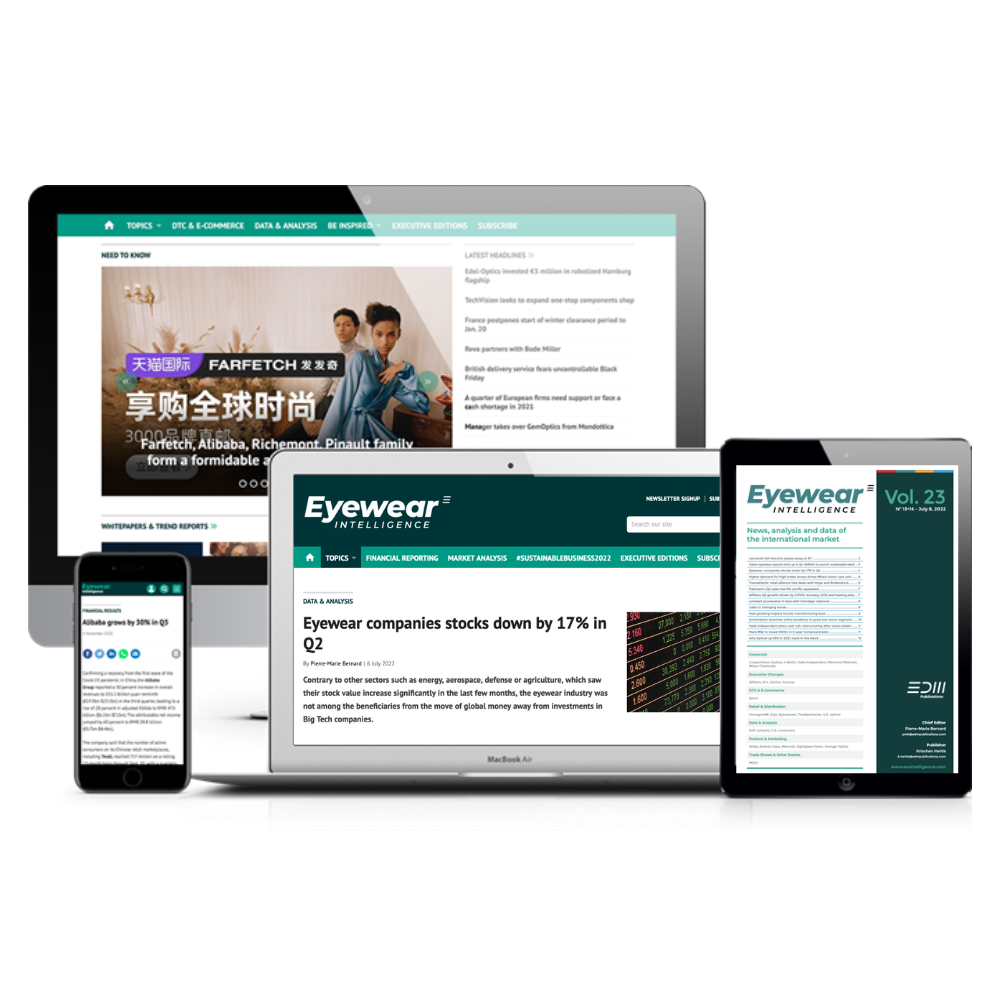Lunor sees room for international expansion

Lunor, the German-based eyewear company, is looking to reinforce and expand its international presence, notably in Europe and Asia, through a mix of partnerships with long-term distributors and direct distribution in some selected markets. We discussed the company’s international strategy with Thomas Dobler, the German senior manager who was appointed ...
Already an Eyewear Intelligence subscriber? Sign in here.

Subscribe today
Buying a membership today will give you:
- Unlimited access to ewintelligence.com - all insight and analysis available online
- Our executive edition of Eyewear Intelligence (Digital Edition) - the must-read for all decision-makers in the industry
- Weekly E-mail Briefing from the Chief Editor with the lastest analysis and most important industry developments
- Case studies and best practices on business challenges
- Guest chronicles, interviews, insights from industry experts and leaders that are shaping the future of the industry
- Access to over 11,500 articles and analyses in the archive
- Personal library to save articles and track your key content
- Powerful search and intuitive navigation
- Organisation-wide access across offices, people and devices
To continue reading this article register now.

